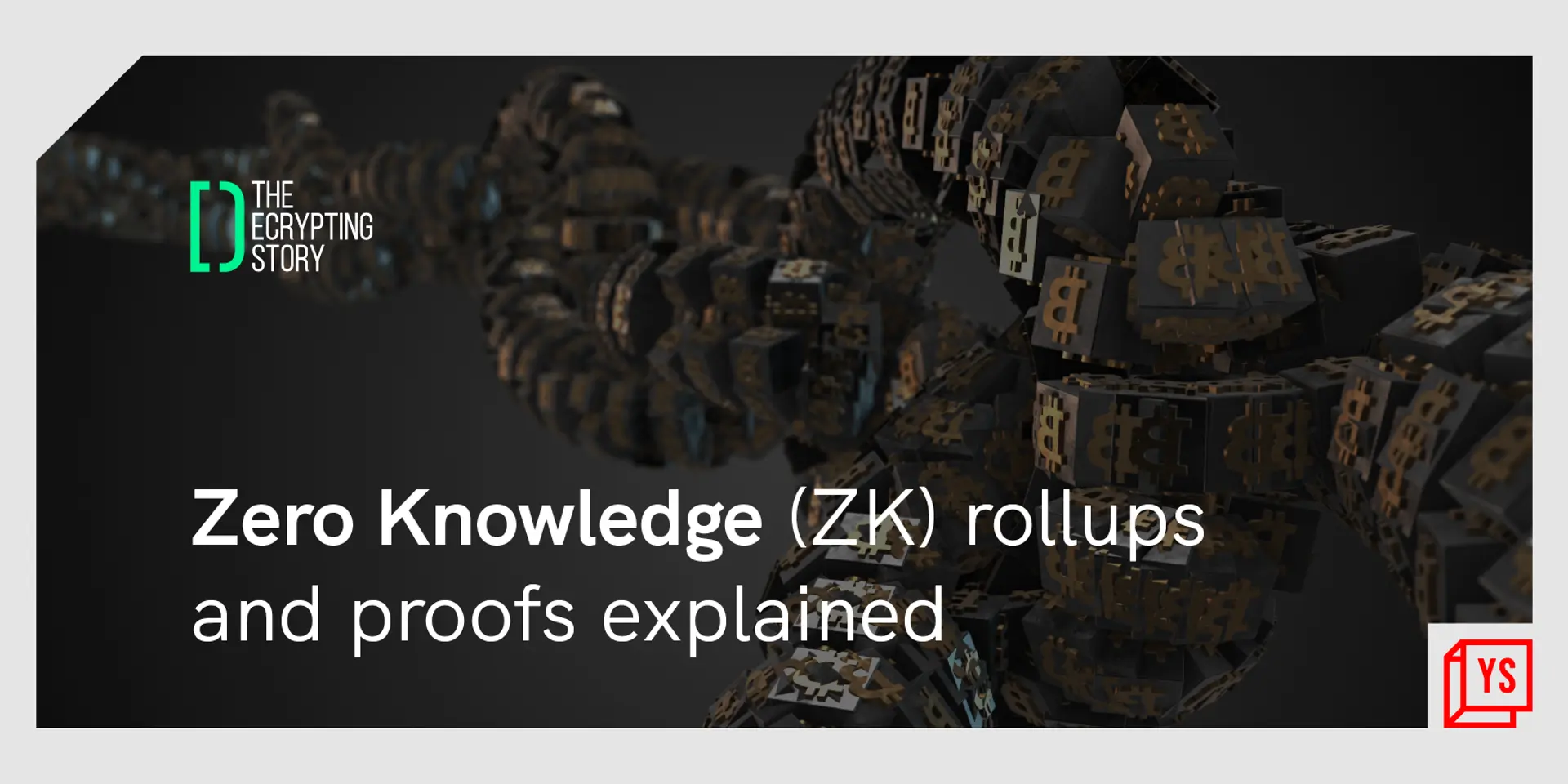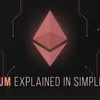What is ZK proof in blockchain? Zero knowledge validity proofs, rollups, and Polygon’s vision for ZK tech explained
Zero Knowledge (ZK) rollups and proofs allow bundled transactions to be valid off the main blockchain in a cheaper, faster, and privacy-focused manner, thereby allowing builders and developers to use Layer 1 blockchains at scale. Here’s all you need to know.
(It may help to read our explainer articles on blockchain and Ethereum first to get a better understanding of Zero Knowledge proofs and how they work)
If the Web 3 space needs to see mass adoption in 2022, addressing blockchain scalability and optimising efficiency and costs are of paramount importance.
Ethereum (ETH), despite being the most widely adopted platform for blockchain-based apps, suffers from slow transaction speeds and high transaction costs (gas fees), which can rise to hundreds of dollars even for micro transactions, due to network congestion.
Ethereum alternatives such as Binance Smart Chain (BSC), Solana (SOL), Cardano (ADA) and others come with their own set of disadvantages, such as a relative lack of decentralisation (BSC and SOL) and slow rollout times (ADA).
This is where Layer 2 solutions and Zero Knowledge (ZK) rollups and proofs come into play.
Zero Knowledge (ZK) proof explained
Layer 2 solutions such as Polygon’s Proof of Stake chain, the Bitcoin Lightning Network, Ethereum Plasma, Arbitrum, and Optimism seek to optimise inefficient Layer 1 blockchains (like Bitcoin and Ethereum) by conducting transactions off the main chain and posting bundles of valid transactions back on to the main chain.
In Layer 2 solutions, rollups are the method of rolling many transactions (performed off the main chain) into a single bundle.
When the bundle is eventually recorded on a blockchain like Ethereum, the cost per transaction is significantly lower as the gas fees are shared among several users whose transactions are part of the bundle.
In a ZK rollup, there are smart contracts that process and verify that these bundled transactions are valid off-chain. ZK rollups thus allow for the validation of blocks in a cheaper, faster, and privacy-focused manner, thereby allowing builders and developers to use Ethereum at scale.

ZK on Ethereum
According to the Ethereum blog, ZK rollups bundle hundreds of transfers off-chain and generate a cryptographic proof, known as a SNARK (Succinct Non-interactive ARgument of Knowledge). This validity proof is posted on Layer 1.
“The ZK rollup smart contract maintains the state of all transfers on Layer 2, and this state can only be updated with the validity proof. This means that ZK-rollups only need the validity proof instead of all transaction data. With a ZK-rollup, validating a block is quicker and cheaper because less data is included,” as per Ethereum.
Further, there are zero to minimal delays when posting transactions from Layer 2 to Layer 1 since the validity proof accepted by the ZK smart contract has already verified the funds or transactions.
Overall, ZK proof can be described as technology that enables one party (the prover) to prove to another party (the verifier) that transactions are valid, without disclosing or conveying transaction information to prove their validity.
Not only does this bring privacy to the Ethereum blockchain but also reduces the amount of data that needs to be shared and proven between users.
Despite their advantages, ZK proofs face some challenges.
For instance, ZK proofs require robust infrastructure (computers) to run and a high degree of data optimisation to reach their true potential, which may limit the number of users looking to become verifiers. Further, some ZK proof technologies may have to go through a lengthy initialisation phase.
Polygon’s vision for ZK
Ethereum scaling infrastructure solution Polygon is one of the primary drivers for ZK in Ethereum scaling, and has even committed $1 billion to its ZK-related efforts.
In late 2021, Polygon announced its $400 million acquisition of Mir - a startup building Zero Knowledge (ZK) technology - to launch a new Ethereum-compatible rollup.
“Mir gathered a team of talented cryptographers and engineers, and after almost two years of work developed the world’s fastest ZK scaling technology. The Mir team is now joining Polygon in order to use this ground-breaking technology and build our new project - Polygon Zero, a highly-scalable, Ethereum-compatible ZK Rollup,” the startup said.
Over the last year, Polygon took other major steps towards ZK scaling. Some of these include its merger with Hermez Network (now known as Polygon Hermez), Polygon Miden (an Ethereum-compatible Scalable Transparent ARguments of Knowledge [STARK] rollup), and Polygon Nightfall (a privacy-focused rollup built alongside EY).
With Polygon Zero also in its suite of scaling solutions, Polygon believes ZK scaling “represents the future of Ethereum”, and the missing piece related to recursive ZK proofs is solved by Mir.

Polygon cofounders (L to R) Anurag Arjun, Sandeep Nailwal and Jaynti Kanani
Further, Polygon said in a blog post that its new Plonky2 (an optimising proving system) can generate recursive proofs in 170 milliseconds on a laptop.
“Currently, the throughput of every blockchain (including every scaling solution) is limited by the capacity of the weakest node in the network, because every node has to process every transaction. With horizontal scaling, the throughput can be proportional to the total computing power available in the network. This can fundamentally improve scaling properties, because the throughput increases with every node that gets added to the network,” the startup claimed.
In terms of its wider vision for Ethereum scaling, Polygon Zero will become part of the startup’s blockchain scaling suite of solutions alongside its Proof of Stake (PoS) chain, Polygon Software Development Kit (SDK), and others.
“Our industry is still in an early phase when it comes to scaling and blockchain infrastructure in general, and at Polygon it is our strategic decision to explore and encourage all meaningful scaling approaches and technologies at this stage. We believe this is the only way to establish Polygon as the leading blockchain platform and to onboard the first billion users to Ethereum,” the startup said.
Edited by Teja Lele









